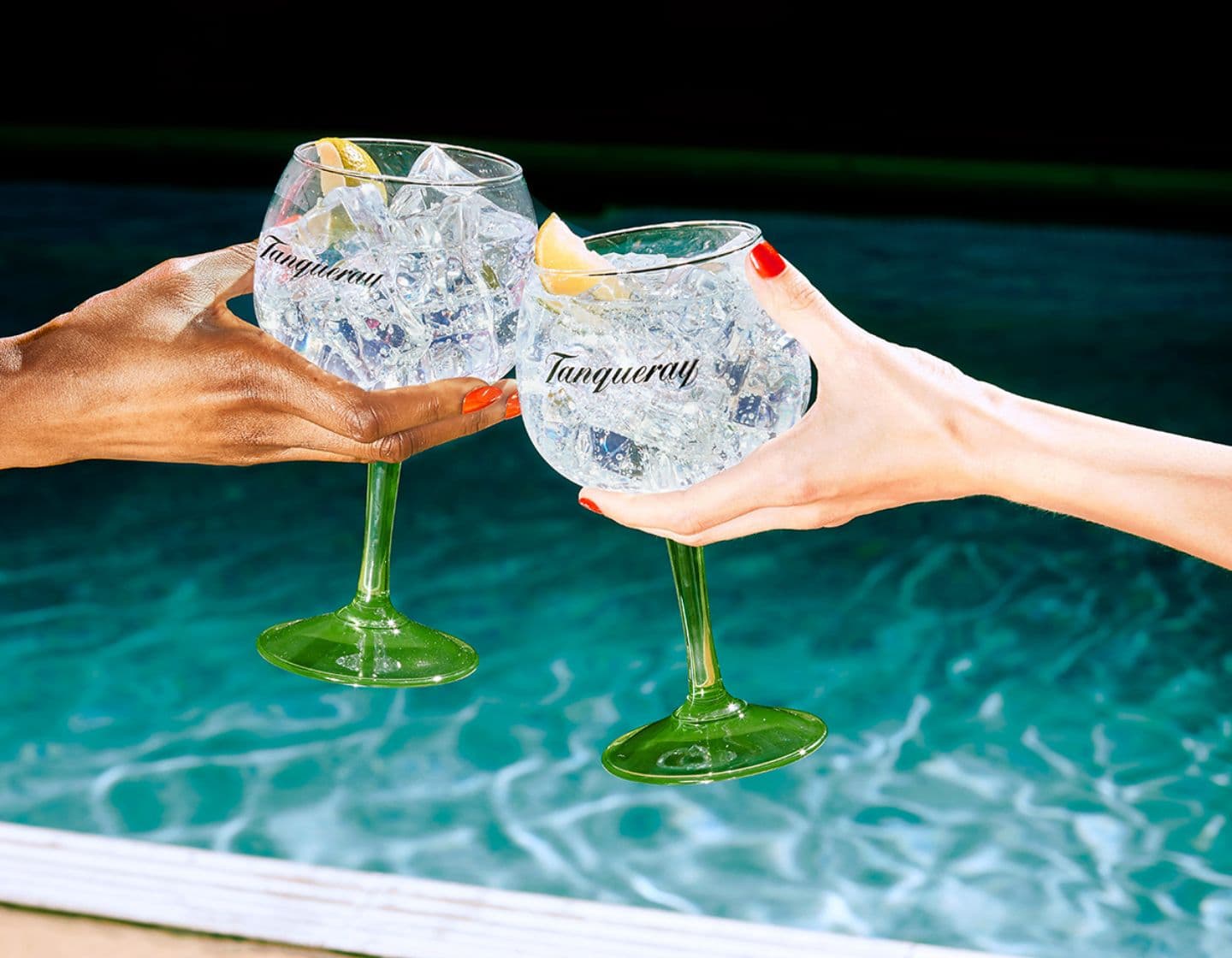Blogs & Inspiration
The Beauty of Gin Botanicals with Tanqueray
Behind every perfect gin cocktail lies a secret garden of botanicals. Explore the unique qualities of different botanicals, pick up essential tips and try our serves designed to complement each gin's unique aromas and flavours.
Estimated reading time: 4 minutes
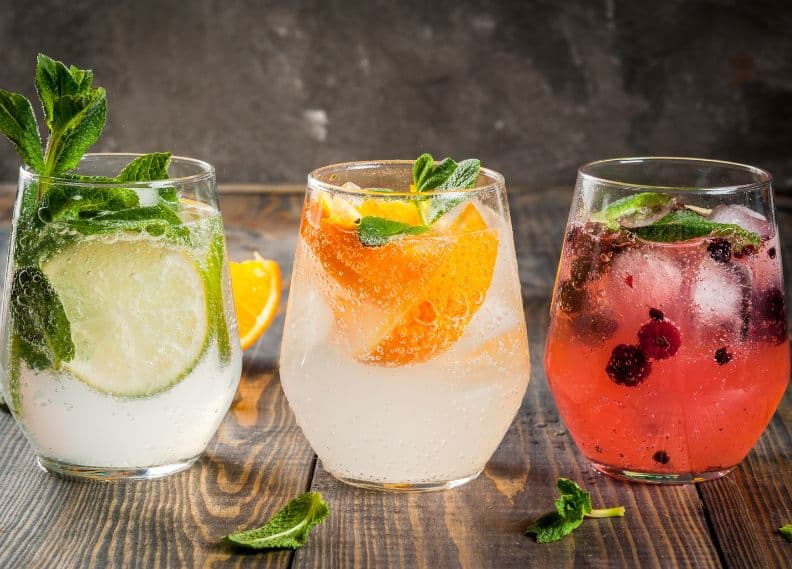
How are Botanicals used in Gin?
Gin is produced by combining a neutral grain spirit with juniper berries and other botanical ingredients such as fruits, seeds and spices.
The aromatic compounds found in botanicals are absorbed when immersed in the spirit or by the vapour as it passes through during the distillation process. The Master Distiller meticulously selects the exact combination of botanicals to produce a perfect balance of flavours unique to their gin.
The Importance of Juniper
Juniper berries are the core botanical found in all gins and, by law, they must be the principal flavour to classify a spirit as gin. They are fragrant and spicy with tasting notes of lavender and camphene.
There are hundreds of additional botanicals used to produce gin. Here are a few of the most common:
Four Tantalising Gin Serves
Understanding your chosen gin's different botanicals and flavours helps create better, more balanced serves and bring freedom to experiment with ingredients and garnishes.
Here are four gin serves highlighting the botanicals in the world-famous Tanqueray gin.
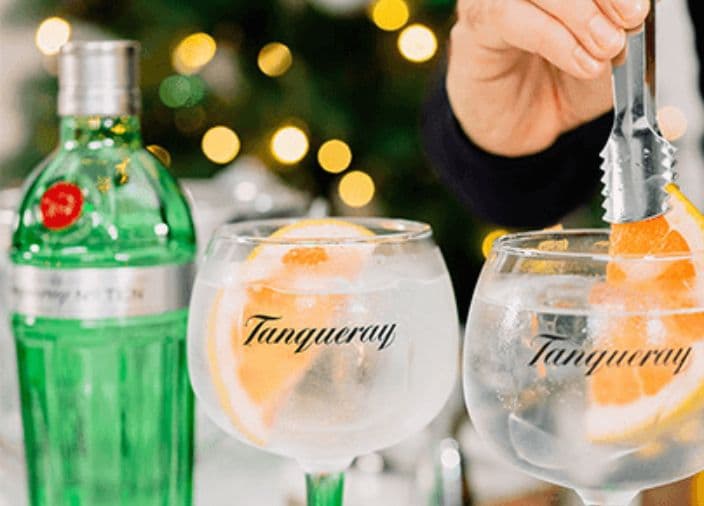
Tanqueray Tonic with Lemon and Rosemary
- Gin: Tanqueray London Dry.
- Botanicals: Juniper, coriander, angelica root and liquorice.
- Flavour: Distinctive piney juniper and faint lemon zest.
- Tasting notes: The combination of lemon and rosemary perfectly complements the notes of liquorice and lemon zest.
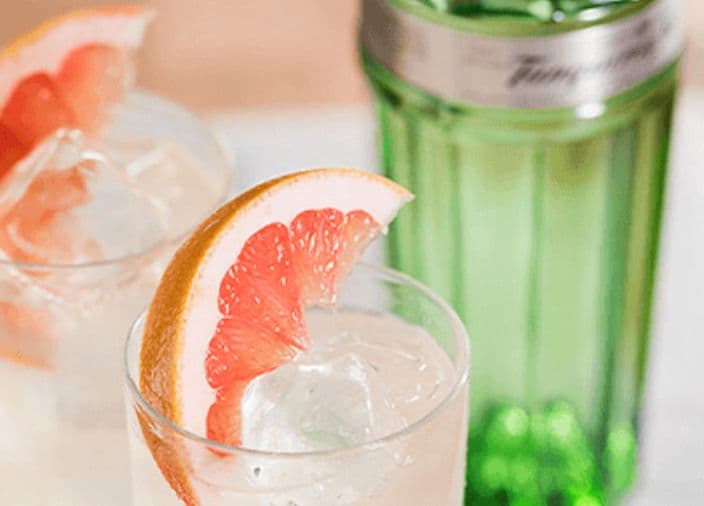
Tanqueray No. Ten Martini
- Gin: Tanqueray No. Ten
- Botanicals: Tanqueray's four base botanicals, juniper, coriander, angelica root and liquorice, together with whole fresh citrus and chamomile.
- Flavour: Citrus and zesty notes.
- Tasting notes: The pink grapefruit garnish draws out the subtle hints of citrus and chamomile.
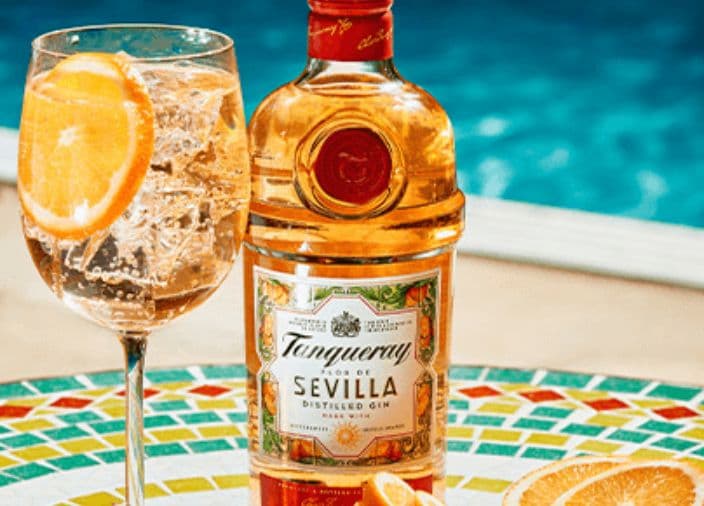
Tanqueray Flor de Sevilla Negroni
- Gin: Tanqueray Flor De Sevilla.
- Botanicals: Tanqueray's four base botanicals; juniper, coriander, angelica root and liquorice, together with bittersweet Seville oranges and orange blossom flavours.
- Flavour: Tangy and sweet profile.
- Tasting notes: A sumptuous evening aperitif, highlighting tangerine and hints of juniper and coriander in the gin.
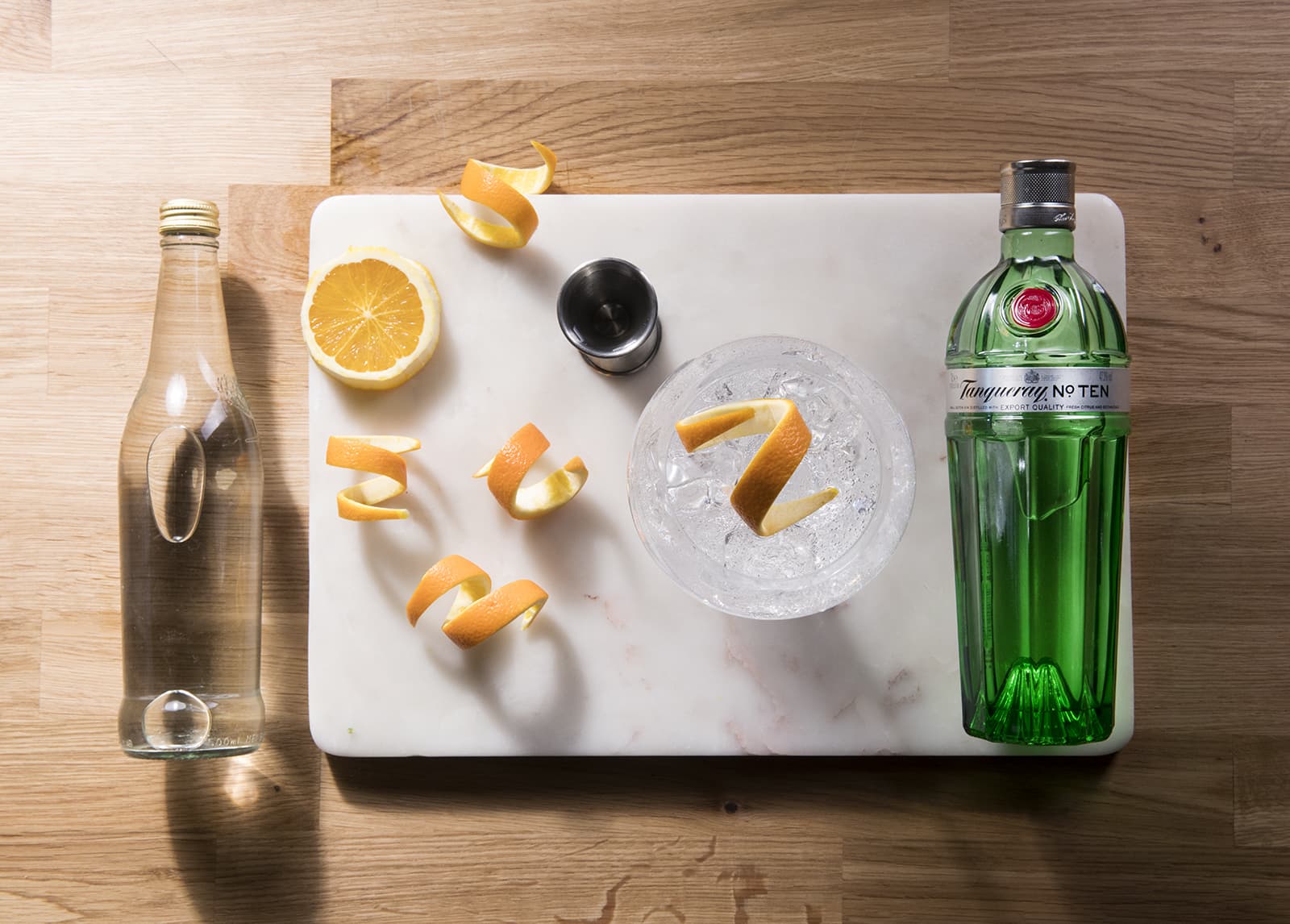
Tanqueray Rangpur and Tonic
- Gin: Tanqueray Rangpur.
- Botanicals: Tanqueray's four base botanicals; juniper, coriander, angelica root and liquorice, with Rangpur lime (an exotic citrus fruit originating from India), ginger and bay leaves.
- Flavour: A light, easy-drinking gin with a sharp citrus twist.
- Perfect serve: Tanqueray Rangpur and Tonic.
- Tasting notes: A distinct citrus flavour best paired with premium tonic water and a generous wedge of lime.
Armed with the knowledge of botanicals and their unique qualities, as well as the versatility, quality, and depth of Tanqueray, we can craft concoctions that pay homage to the botanicals' diverse nature and elevate the overall guest experience.
Key Takeaways
- Botanicals, The Heart of Gin: Botanicals are the carefully chosen flavourful ingredients that define each gin's unique taste.
- Juniper, The Essential Ingredient: Juniper berries are the core botanical in all gins and are legally required to be the dominant flavour.
- Common Botanicals: While juniper is the star, there's a wide array of other botanicals used in gin production, including coriander seeds, nutmeg, orange peel, cinnamon and liquorice.
- Crafting Gin Cocktails: Understanding botanicals helps to create well-balanced cocktails and experiment with various ingredients and garnishes that highlight the gin's botanical essence.
- Mixing with Tanqueray: Tanqueray's range of gins, including London Dry, Tanqueray No. Ten, Tanqueray Flor de Sevilla, and Tanqueray Rangpur offer the perfect base for botanical cocktails.
Sign up for free and become a member of Diageo Bar Academy today to unlock the latest industry news, trends, and tips to keep your bar knowledge up to speed!
